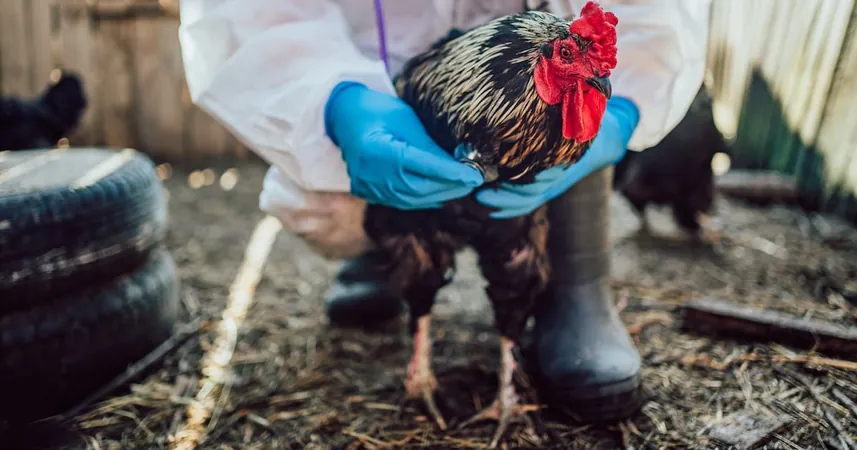
Alarming Bird Flu Outbreak Raises Concerns Over Raw Milk Consumption
2025-03-31
Author: Jacob
The alarming spread of the bird flu virus (H5N1) is shaking the foundations of the food and beverage industry, prompting urgent action and raising significant public health concerns. The rapid mass culling of poultry has commenced globally to contain the outbreak, and the United Nations’ Food and Agriculture Organization (FAO) is calling for enhanced biosecurity protocols in all countries.
In an unsettling development, instances of bird flu have not only been reported in birds but have recently surged among cattle. Just last week marked the first detection of the virus in sheep, escalating fears of a broader cross-species transmission.
One of the most pressing concerns is the potential spread of the virus to humans via contaminated animal products, notably raw milk.
Is Raw Milk a Hidden Danger?
Raw milk is already notorious for harboring various harmful microorganisms, including Salmonella, E. coli, and Listeria. With the recent discoveries linking H5N1 to dairy, experts are probing the risks associated with consuming raw milk.
Research indicates that rodents can become infected with bird flu when ingesting tainted raw milk, leading the National Institutes of Health to warn that "drinking raw milk may pose a risk of transmission to humans." This crucial finding raises real worries about the safety of consuming unpasteurized dairy products.
The Impact on Milk Sales: Raw vs. Pasteurized
The past few years have seen a significant increase in consumer preference for raw milk and its associated products, like artisanal cheeses and organic butter, primarily due to claims of superior taste and various health benefits. Advocates argue that raw milk can provide advantages such as improved immunity and reduced incidence of allergies.
However, the emerging threat of bird flu could drastically shift consumer behavior. As public awareness regarding the potential risks associated with raw milk heightens, we may witness a dramatic increase in sales of pasteurized milk and modified dairy products as health-conscious individuals seek safer alternatives.
With potential outbreaks on the rise, it’s crucial for consumers to stay informed and consider the implications of their dietary choices amidst this health crisis. Will the fear of bird flu lead us to rethink our choices in dairy consumption? Only time will tell.









 Brasil (PT)
Brasil (PT)
 Canada (EN)
Canada (EN)
 Chile (ES)
Chile (ES)
 Česko (CS)
Česko (CS)
 대한민국 (KO)
대한민국 (KO)
 España (ES)
España (ES)
 France (FR)
France (FR)
 Hong Kong (EN)
Hong Kong (EN)
 Italia (IT)
Italia (IT)
 日本 (JA)
日本 (JA)
 Magyarország (HU)
Magyarország (HU)
 Norge (NO)
Norge (NO)
 Polska (PL)
Polska (PL)
 Schweiz (DE)
Schweiz (DE)
 Singapore (EN)
Singapore (EN)
 Sverige (SV)
Sverige (SV)
 Suomi (FI)
Suomi (FI)
 Türkiye (TR)
Türkiye (TR)
 الإمارات العربية المتحدة (AR)
الإمارات العربية المتحدة (AR)